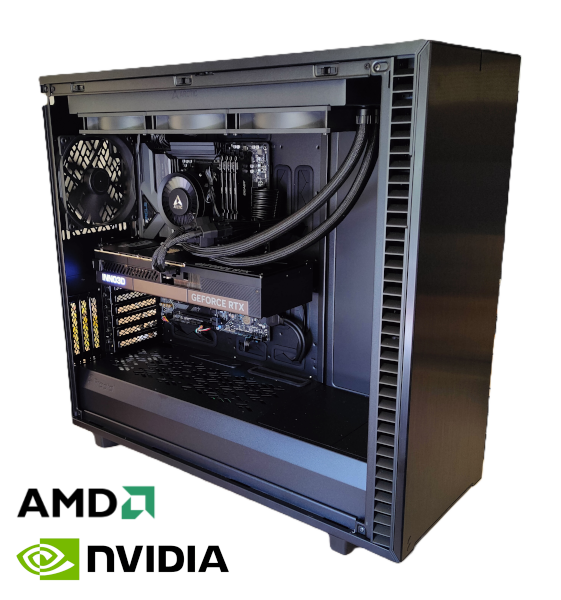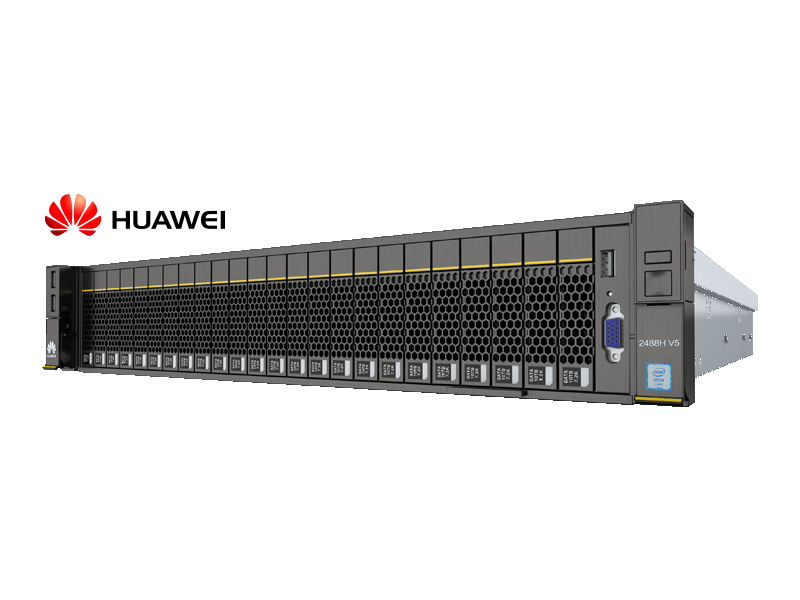Department of applied mathematics and computational sciences
Technical equipment
Powerful workstation for graphics card calculations (Kuba)
- Hardware
- motherboard Gigabyte X870 Eagle WiFi7
- processor AMD Ryzen 9 9950X (4.3 GHz, boost up to 5.7 GHz, 16 jader, 81 MB cache)
- operating memory Kingston Fury Beast 128 GB (kit of 4x 32 GB modules)
- system disk Lexar NQ790 SSD 4 TB M.2 NVMe
- data disk Western Digital Purple 18 TB, SATA III, 7200 rpm, 512 MB cache
- graphics card GeForce RTX 5090, 32 GB GDDR7
- power source Corsair HX1500i and water cooling Arctic Liquid Freezer III 420
- Software
- operating system Arch Linux (rolling release, Linux core 6.15.4)
- development environment NVIDIA CUDA Toolkit 12.9
- programming and numeric computing platform MATLAB R2025a
Symmetric multiprocessor Huawei FusionServer Pro 2488H (Hugo)
- Hardware
- barebone system Quad Intel 2488H V5 2U
- 4x processor Intel Xeon Gold 6152 (2.1 GHz, 14nm, 22 cores, cache 30.25 MB)
- shared memory 1536 GB DDR4 2666 GHz
- disk subsystem including 10x hardisk 1.2 TB SAS 12 Gb/s 10K rpm and 2x SSD/DC drive 2 TB for operating system
- graphic card Gigabyte GTX 1050 Ti
- IPMI card
- Software
- operating system CentOS 7
- development environment Intel Parallel Studio XE 2018 AE Cluster Edition
Engineering software COMSOL Multiphysics
- Modelling and simulation of complex systems that consider multiple physical processes simultaneously and their interactions.
- Quadratic programming, including methods for FETI type domain decomposition or implementation of SVM machine learning techniques.
- Python implementation of surrogate-accelerated Markov chain Monte Carlo methods for posterior sampling in Bayesian inversion. Based on the delayed acceptance Metropolis-Hastings algorithm.
- MATLAB scripts for analyzing slope stability problems in 2D and 3D using the limit load and shear strength reduction methods. The code supports various configurations of finite elements, material models, continuation methods, and linear solvers.
- Efficient and flexible MATLAB implementation of 2D and 3D elastoplastic problems. The implementation is rather universal for various elastoplastic models, finite elements, and quadrature rules. It provides several computing benchmarks including elastic and elastoplastic models with the von Mises or Drucker-Prager yield criteria as well as finite element implementations of P1, P2, Q1, Q2 elements in both 2D and 3D.
GEM
- Modelling of thermo-mechanical processes in the field of geotechnics (development of stress and temperature fields, rock failure, determination of initial stress components, identification of material parameters, micromechanics and behavior of homogenized material).









